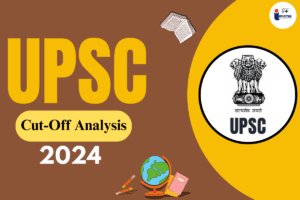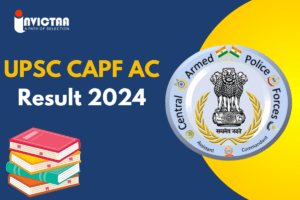UPSC Dropper Preparation Strategy : The UPSC examination is among the most competitive examinations in India and requires concentration, discipline, and adequate preparation. For droppers—the candidates who have tried and failed to clear the examination earlier—it is necessary to enhance their game with creative preparation strategies.
This guide interacts explicitly with UPSC droppers and intends to make their second (and third) attempt worthwhile by providing guidance, valuable hints, and procedures.
UPSC Dropper Preparation Strategy
A sound strategy for a UPSC dropper combines aspects from past preparation and newer methods to cover weaker elements. Look at the structured approach below:
| Area | Focus |
| Prelims | Strengthen core subjects like History and Polity, and work on improving speed and accuracy for Prelims. |
| Mains | Prioritize answer writing, especially for essay and ethics papers; practice for optional subjects, too. |
| Current Affairs | Stay updated with daily newspapers, keep concise notes, and regularly review monthly compilations. |
| Mock Tests & Revision | Consistent mock tests and revisions will help refine time management and retention. |
| Time Management | Set daily and weekly study goals, with enough time for regular review and adjustments. |
This method enables the droppers to tackle their drawbacks while capitalizing on their strengths and thus establishing a solid base for the next chance at UPSC.
UPSC Focus Topics for Droppers
Grasping the UPSC syllabus will go a long way in planning effectively and escaping overburdening situations; here’s a broad overview of the syllabus so that one can utilize one’s time and energy effectively:
| Exam | Subjects and Topics |
| Prelims | GS Paper I: Core topics like History, Polity, Geography, Economy, Environment, and Science & Tech; CSAT: Reasoning, Comprehension |
| Mains | GS Papers: Heritage, Governance, Social Justice, International Relations, Ethics, and more; Optional Papers: Two in-depth papers |
| Essay | Develop critical thinking and organized writing on diverse topics |
| Language | A qualifying paper in a regional language and English to test basic comprehension |
Repeaters often know where they struggled in the past, so tailor your efforts to topics that need more work. This breakdown can effectively guide your UPSC dropper preparation strategy.
Weekly Timetable for UPSC Droppers
Creating a schedule to manage your overall workload and resources may be proper. An example of a weekly timetable is as follows:
| Day | Morning | Afternoon | Evening |
| Monday | GS: History and Geography | Optional Paper 1 | Answer Writing (GS) |
| Tuesday | GS: Polity | Optional Paper 2 | Revision of Polity |
| Wednesday | GS: Environment & Ecology | CSAT Practice | Mock Test (Prelims) |
| Thursday | GS: Economy & Current Affairs Review | Optional Paper 1 | Essay Practice |
| Friday | GS: Science & Tech | Optional Paper 2 | Ethics Answer Writing |
| Saturday | Revision of weekly GS topics | Mock Test (Mains) | Review Mock Test Results |
| Sunday | Current Affairs Summary | Revision of Optional Subject | Rest & Weekly Reflection |
This schedule ensures sufficient preparation for the final quizzes at the end of the study. However, feel free to adjust this schedule according to your preferred pace and areas of strength.
Essential Tips to Boost Your UPSC Dropper Preparation Strategy
Focus on High-Weight Topics: Identifying the key areas that carry the most weight in the exam for you would also fall under the starting steps of your preparation. Focus on politics, economy, and history as the subjects that will probably give you the most returns. For Mains, prioritize optional subjects you are comfortable with and current affairs you are ready to tackle. Start writing tens of answer papers with these in mind, as they score well with practice.
Practice Answer Writing Regularly: Regarding written answers, start putting every minute detail in your head along with the final drafts, starting from minor points on broad topics to significant points on narrower topics that matter better. Begin with a collection of niche coarse-written-answer-essays that focus on being well structured and relate to one another based on them being well-defined, crisp, focused, and above all, unambiguous and concise.
Use Mock Tests Wisely: Start practising with mock exams, as they will prove to be instrumental in tracking down your progress and all the areas that require improvement. Begin with each mock case exam and go on to analyze your favourite answers to prevent repeating them. Make your mock tests effective and turn them into a core preparation strategy.
Stay Updated on Current Affairs: Many remember extreme details from every section of every paper; there is a slight possibility that wasting time on extreme details is a faulty practice, considering one of the better ways to go about this is breaking down boring news articles into sub-headlines to cover 20 articles covering the critical areas.
Revise Consistently: Before tackling the revision schedule, Revisiting topics is a core step in making sure ideas and knowledge are retained within the head along with new perspectives and fresh starts and resolve to carry on amalgamating or vegetating all the information into your head for at least a week. Schedule periodic time for revisions weekly and prepare for any Prelims or Mains exams that might be scheduled in the future.
Daily Time Allocation for UPSC Dropper Preparation Strategy
It is noteworthy that proper time management is paramount while preparing for both Prelims and Mains. Here’s how I propose daily budgeting to the UPSC droppers:
| Component | Time (per day) |
| GS Subjects | 3–4 hours |
| Optional Subject | 2–3 hours |
| Answer Writing | 1 hour |
| Current Affairs | 1 hour |
| Mock Tests | 1–2 hours per week |
Also read: UPSC Selection Process 2025
Adhering to this timetable can assist in meeting the requisite issues while slowly making headway.
UPSC Dropper Preparation Strategy Tips
Being a UPSC dropper comes with unique challenges, but a well-structured UPSC Dropper Preparation Strategy can help you take them head-on. Remember, preparing for an examination is not just about putting in more hours but working with more focus and precise attention. Concentrating on high-weight topics, practicing answer-writing, consistent revision, and keeping oneself abreast of news will enhance your command of core subjects and elevate your confidence.
Clear your mind, be positive, and set reasonable targets for yourself. With the right level of discipline, determination, and hard work, you can succeed with this attempt. We wish you lots of success.
UPSC Dropper Preparation Strategy FAQs
Q1 How much time should I study daily for the UPSC Dropper Preparation Strategy?
Ans try to focus on at least 6-8 hours of study daily.
Q2 Why are mock tests necessary in the UPSC Dropper Preparation Strategy?
Ans Mock tests help improve time management and improve your readiness.
Q3 How can I stay updated with current affairs in my UPSC Dropper Preparation Strategy?
Ans Read a daily newspaper and use monthly Invictaa current affairs magazines.





